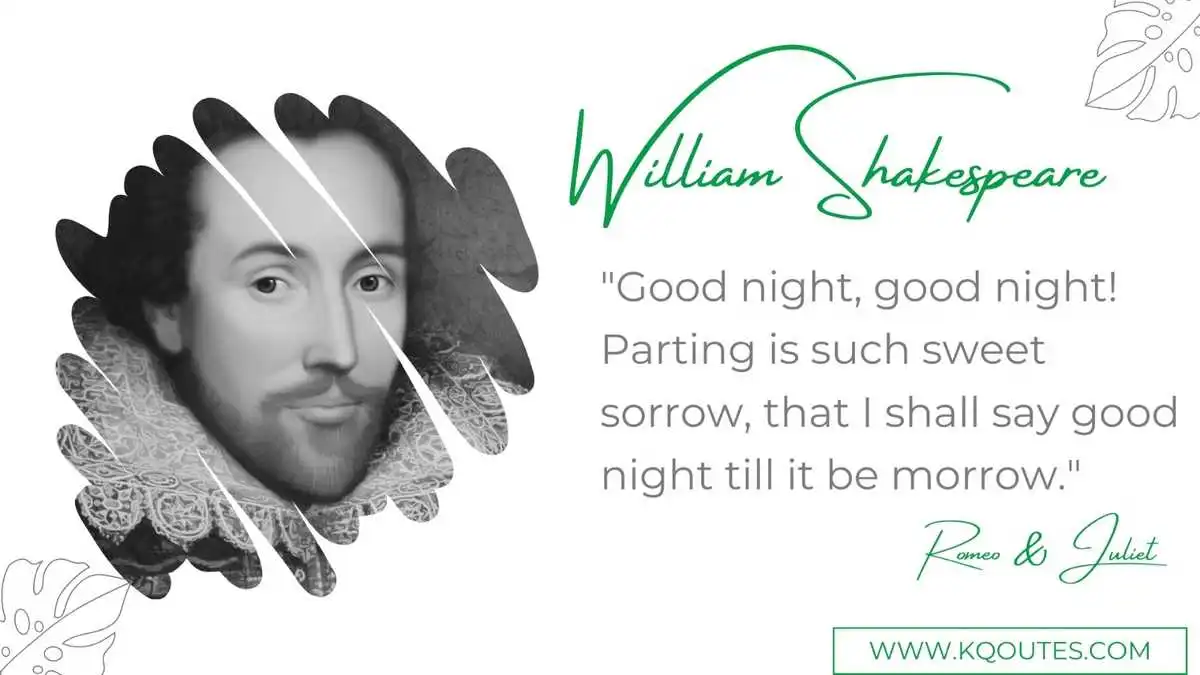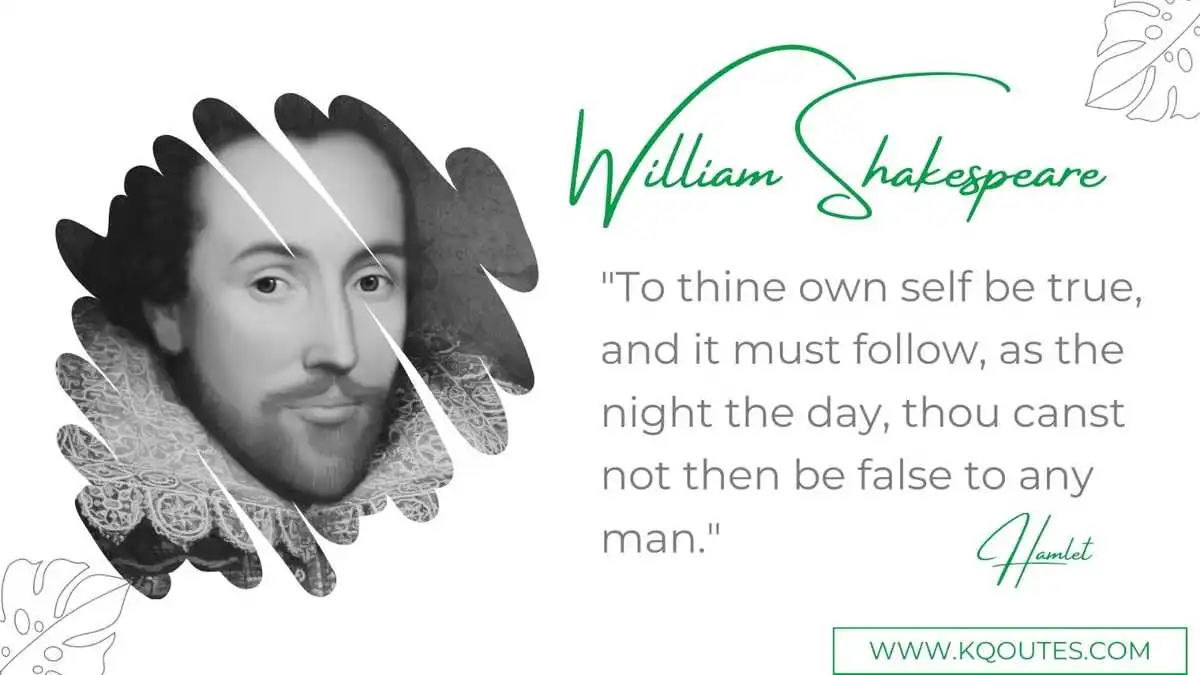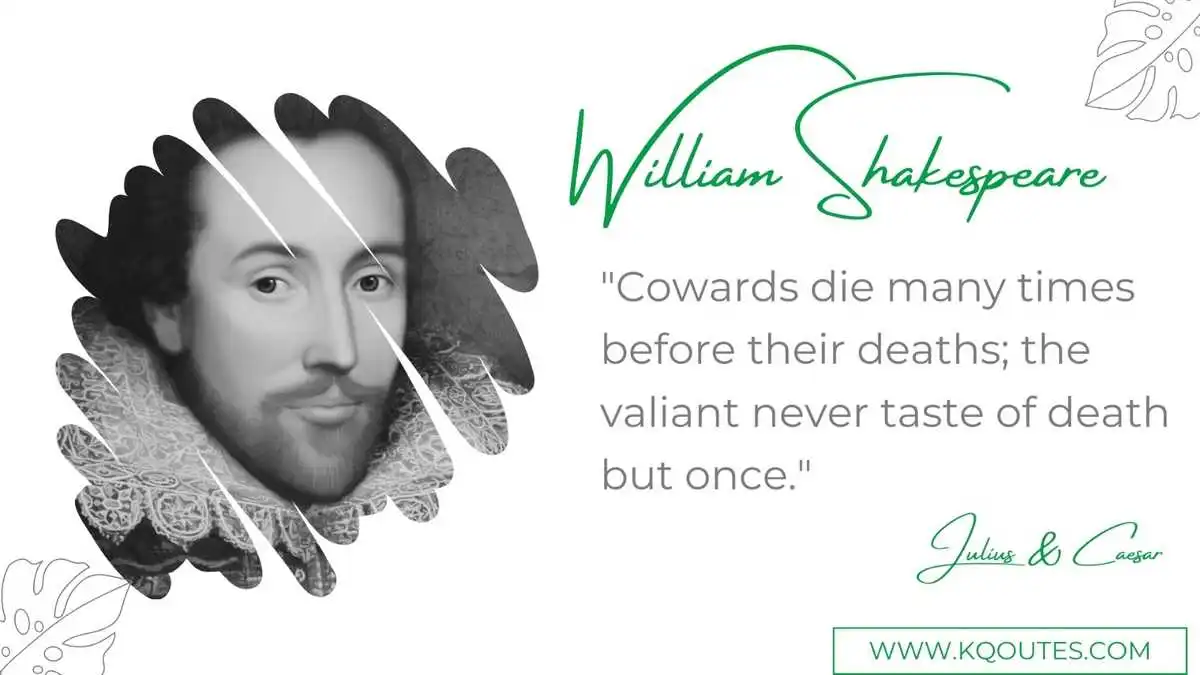William Shakespeare was an English playwright, poet, and actor, widely regarded as one of the greatest writers in the English language and world literature. Shakespeare’s works, which include plays like “Romeo and Juliet,” “Hamlet,” “Macbeth,” and many others, have had a profound and enduring impact on literature, theatre, and culture. He lived during the late 16th and early 17th centuries, and his works continue to be studied, performed, and celebrated to this day.
Here are 15 Shakespeare’s Verbal Tapestry
Good night, good night! Parting is such sweet sorrow, that I shall say good night till it be morrow.

This quote reflects the bittersweet feeling of saying goodbye. Romeo is expressing that even though parting is sad, it carries a certain sweetness because it means they will meet again tomorrow.
Though she be but little, she is fierce.
This quote acknowledges that even though someone might be small or physically diminutive, their spirit and strength can be powerful and intense.
This above all: to thine own self be true.
Polonius advises his son Laertes to prioritize being honest and true to oneself. It’s a reminder to remain authentic and not compromise one’s values or character.
All that glitters is not gold.
This quote suggests that appearances can be deceiving. Just because something looks valuable or attractive on the surface doesn’t necessarily mean it has worth or integrity.
We are such stuff as dreams are made on, and our little life is rounded with a sleep.

Prospero reflects on the transient and ephemeral nature of human existence. He likens life to a dream, and at the end of it all, death is like a peaceful sleep that brings closure to our journey.
To be or not to be, that is the question.
Hamlet is contemplating the nature of life, death, and existence itself. He’s pondering whether it’s better to endure the struggles of life or to end it all, and he’s questioning the choices people face when confronted with challenges.
All the world’s a stage, and all the men and women merely players.
This quote compares life to a play and suggests that people are like actors on a stage, playing different roles throughout their lives. It reflects the idea that human lives have different stages or phases, each with its own experiences and challenges.
The better part of valor is discretion.
This quote emphasizes that true courage often involves being cautious and using good judgment. It suggests that being wise and careful in one’s actions is a more valuable form of bravery than reckless behavior.
The course of true love never did run smooth.
This quote acknowledges that romantic relationships are often complicated and filled with challenges. Love rarely follows a straightforward path and is often beset by obstacles and difficulties.
To thine own self be true, and it must follow, as the night the day, thou canst not then be false to any man.

Polonius advises his son Laertes to remain authentic and honest with himself. By being true to oneself, one is more likely to be honest and trustworthy to others as well.
Brevity is the soul of wit.
This phrase suggests that concise and brief communication is a mark of intelligence and wit. It implies that being able to express complex ideas succinctly is a sign of cleverness.
What’s in a name? That which we call a rose by any other name would smell as sweet.
Juliet expresses that a name is just a label, and the essence of a thing or person remains the same regardless of what it’s called. Names hold no real power to change the true nature of something.
Love all, trust a few, do wrong to none.
This quote advises a balanced approach to relationships. While it encourages a general attitude of love and kindness toward everyone, it also suggests that trust should be given selectively, and harming others should be avoided.
The better part of valour, is discretion.
Like the earlier quote, this emphasizes that true courage involves using good judgment and being cautious. Being smart about when and how to act is more valuable than recklessly rushing into danger.
Cowards die many times before their deaths; the valiant never taste of death but once.

This quote highlights that those who are cowardly and fearful live in constant emotional turmoil, while brave individuals face their fears and challenges head-on, experiencing their true consequences only once.
Which are your favorite William Shakespeare Quotes?
Leave a comment below.

